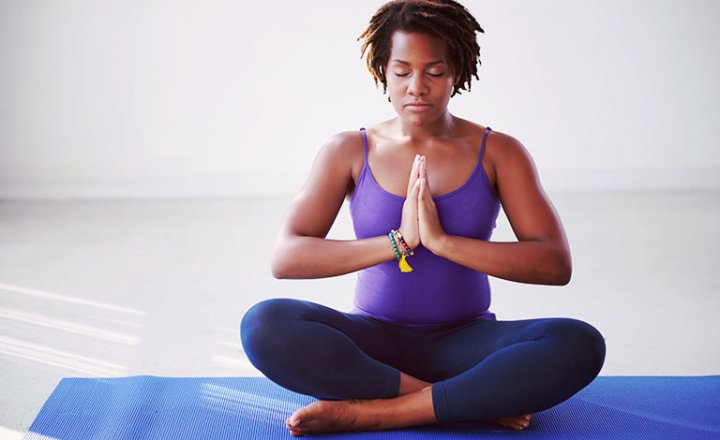In today’s fast-paced world, finding moments of peace and relaxation is essential for maintaining overall well-being. Fortunately, there are several effective techniques for relaxation that can help reduce stress, promote mindfulness, and enhance physical and mental health. In this comprehensive guide, we’ll explore the transformative benefits of yoga, tai chi, and deep breathing exercises, empowering you to incorporate these practices into your daily routine for a more balanced and serene life.
Introduction
In a world filled with constant distractions and demands, taking time to relax and unwind is more important than ever. Relaxation techniques offer a holistic approach to stress management, addressing the mind, body, and spirit. By cultivating a regular relaxation practice, you can experience profound benefits for your physical, mental, and emotional well-being.
The Power of Yoga
Yoga is an ancient practice that combines physical postures, breathwork, and meditation to promote relaxation and inner peace. With roots in Indian philosophy, yoga has become increasingly popular in Western cultures as a holistic approach to health and wellness. Some key benefits of yoga include:
- Stress Reduction: Yoga helps lower levels of cortisol, the body’s primary stress hormone, leading to a greater sense of calm and relaxation.
- Improved Flexibility: Practicing yoga regularly can enhance flexibility, mobility, and range of motion, reducing muscle tension and stiffness.
- Enhanced Mind-Body Connection: Yoga encourages mindfulness and self-awareness, fostering a deeper connection between the mind, body, and breath.
- Emotional Well-Being: Yoga promotes feelings of happiness, contentment, and emotional stability by balancing neurotransmitters and promoting relaxation responses in the body.
- Better Sleep: Yoga can improve sleep quality and duration by calming the nervous system and reducing insomnia symptoms.
Discovering Tai Chi
Tai Chi, often referred to as “moving meditation,” is a gentle form of martial arts characterized by slow, flowing movements and deep breathing. Originating in ancient China, Tai Chi is renowned for its ability to promote relaxation, balance, and harmony within the body and mind. Here are some benefits of practicing Tai Chi:
- Stress Relief: Tai Chi helps reduce stress by promoting relaxation, mindfulness, and the release of tension held in the body.
- Improved Balance: Regular practice of Tai Chi can enhance balance, coordination, and proprioception, reducing the risk of falls and improving overall stability.
- Joint Health: Tai Chi’s gentle, low-impact movements promote flexibility, joint mobility, and circulation, alleviating stiffness and discomfort.
- Mental Clarity: Tai Chi cultivates mental focus, concentration, and clarity, promoting a sense of calm and centeredness amidst life’s challenges.
- Energy Boost: Despite its gentle nature, Tai Chi can increase energy levels and vitality by stimulating the flow of qi (life force energy) throughout the body.
The Art of Deep Breathing
Deep breathing exercises are simple yet powerful techniques for relaxation that can be practiced anytime, anywhere. By focusing on slow, deliberate breathing patterns, you can activate the body’s relaxation response and calm the mind. Here’s how deep breathing can benefit you:
- Stress Reduction: Deep breathing triggers the body’s relaxation response, lowering heart rate, blood pressure, and stress hormone levels.
- Improved Respiratory Function: Deep breathing exercises strengthen respiratory muscles, increase lung capacity, and enhance oxygen exchange, promoting better overall lung health.
- Enhanced Mindfulness: Deep breathing encourages present-moment awareness and mindfulness, helping you become more attuned to your thoughts, feelings, and sensations.
- Anxiety Relief: Deep breathing can alleviate symptoms of anxiety and panic by inducing a sense of calm, balance, and emotional stability.
- Better Sleep: Practicing deep breathing before bedtime can promote relaxation and prepare the body for restful sleep, reducing insomnia and improving sleep quality.
Frequently Asked Questions (FAQs)
Q1: Can I practice yoga, Tai Chi, and deep breathing if I’m not very flexible or physically fit? A1: Absolutely! These practices are accessible to people of all ages, fitness levels, and abilities. Modifications and variations can be made to accommodate individual needs and limitations.
Q2: How often should I practice relaxation techniques to experience benefits? A2: Consistency is key. Aim to practice relaxation techniques daily for optimal results. Even just a few minutes of practice each day can make a significant difference in your overall well-being.
Q3: Can relaxation techniques help with chronic pain management? A3: Yes, relaxation techniques can be effective complementary approaches for managing chronic pain conditions. By reducing stress, tension, and inflammation in the body, relaxation can alleviate pain and improve quality of life.
Q4: Are there any specific breathing techniques I should try for relaxation? A4: Yes, several deep breathing techniques, such as diaphragmatic breathing, box breathing, and alternate nostril breathing, can promote relaxation and stress relief. Experiment with different techniques to find what works best for you.
Q5: How can I incorporate relaxation techniques into my busy schedule? A5: Find moments throughout your day to practice relaxation techniques, such as during breaks at work, before bedtime, or upon waking in the morning. Even brief periods of practice can have a profound impact on your overall well-being.

